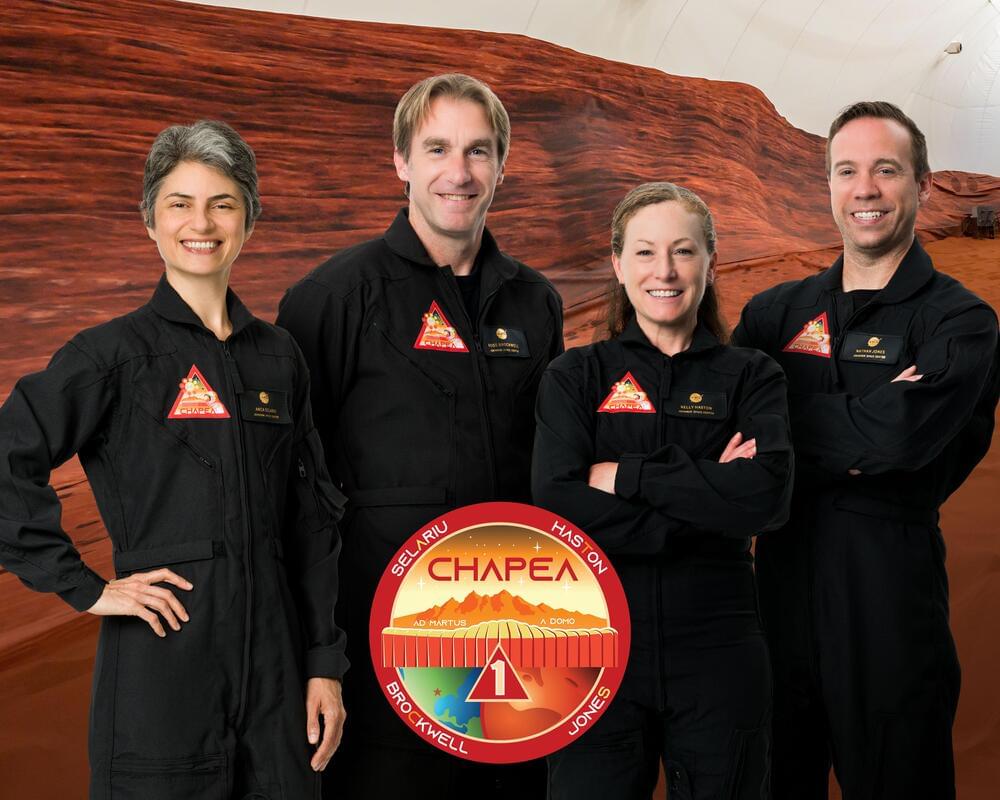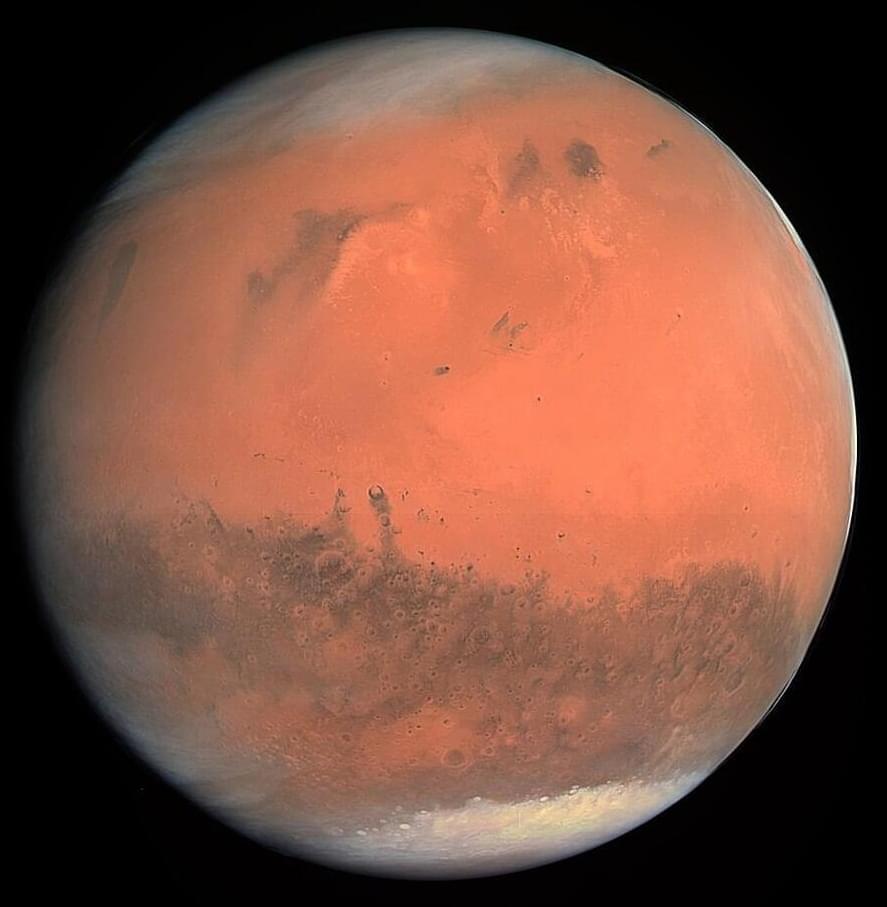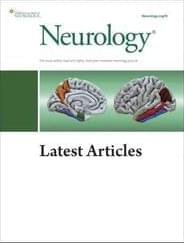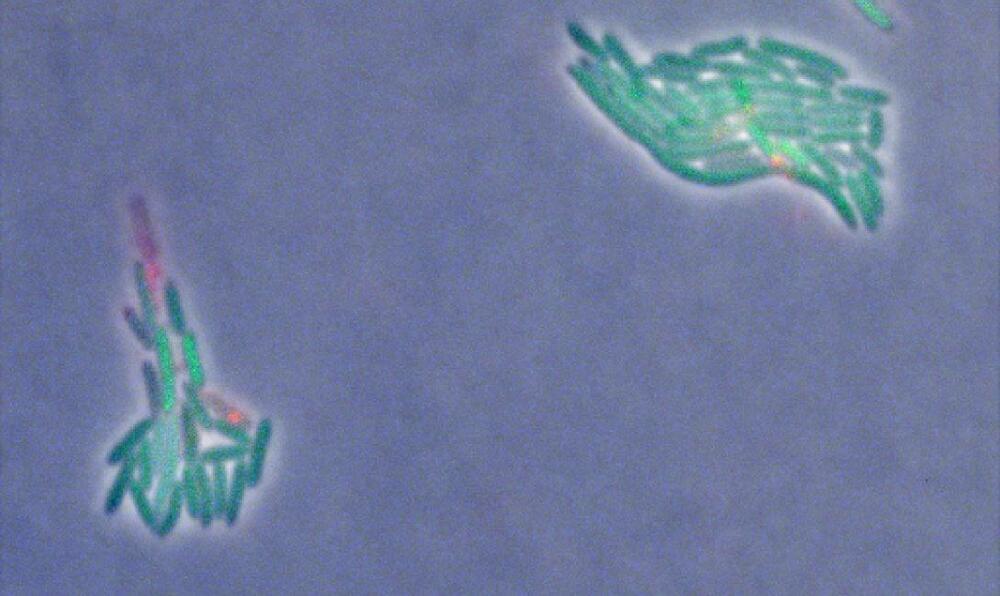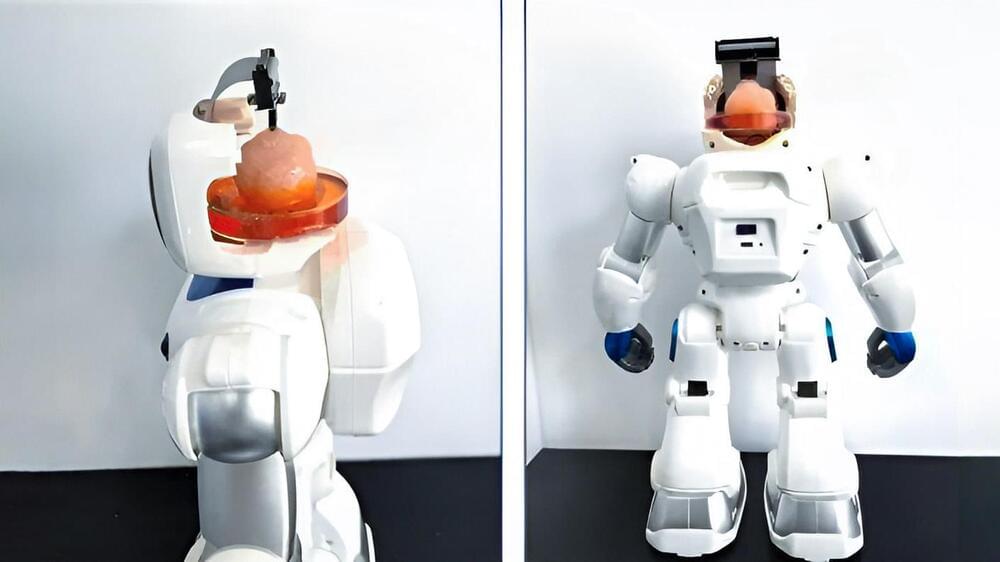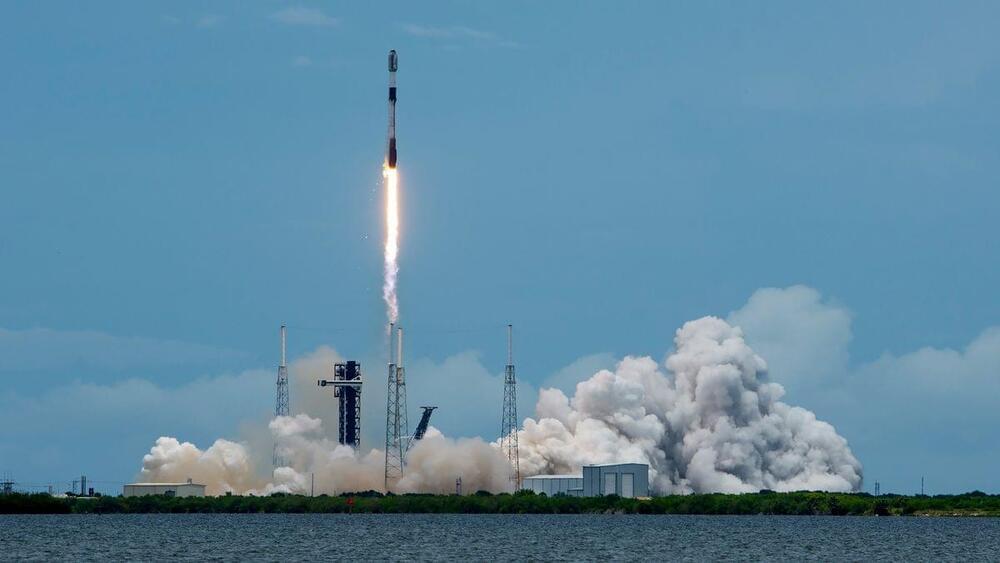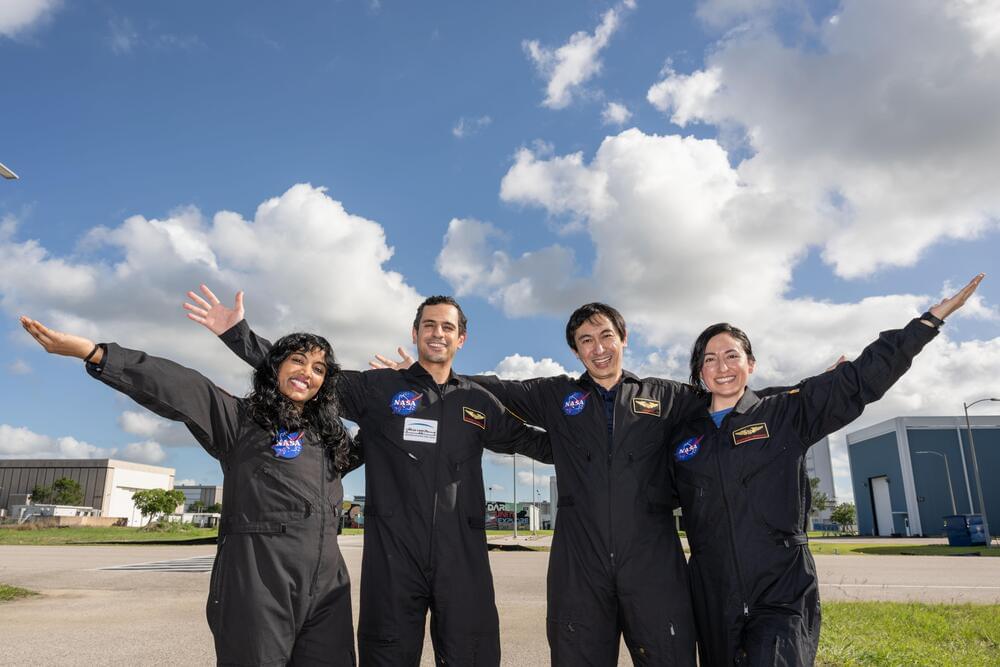Jul 2, 2024
Volunteer Crew to Exit NASA’s Simulated Mars Habitat After 378 Days
Posted by Genevieve Klien in categories: habitats, health, space travel
The four volunteers who have been living and working inside NASA’s first simulated yearlong Mars habitat mission are set to exit their ground-based home on Saturday, July 6. NASA will provide live coverage of the crew’s exit from the habitat at NASA’s Johnson Space Center in Houston at 5 p.m. EDT.
NASA will stream the activity, which will include a short welcome ceremony, on NASA+, NASA Television, the NASA app, the agency’s website, and NASA Johnson’s X and Facebook accounts. Learn how to stream NASA TV through a variety of platforms, including social media.
The first Crew Health and Performance Exploration Analog (CHAPEA) mission began in the 3D printed habitat on June 25, 2023, with crew members Kelly Haston, Anca Selariu, Ross Brockwell, and Nathan Jones. For more than a year, the crew simulated Mars mission operations, including “Marswalks,” grew and harvested several vegetables to supplement their shelf-stable food, maintained their equipment and habitat, and operated under additional stressors a Mars crew will experience, including communication delays with Earth, resource limitations, and isolation.
